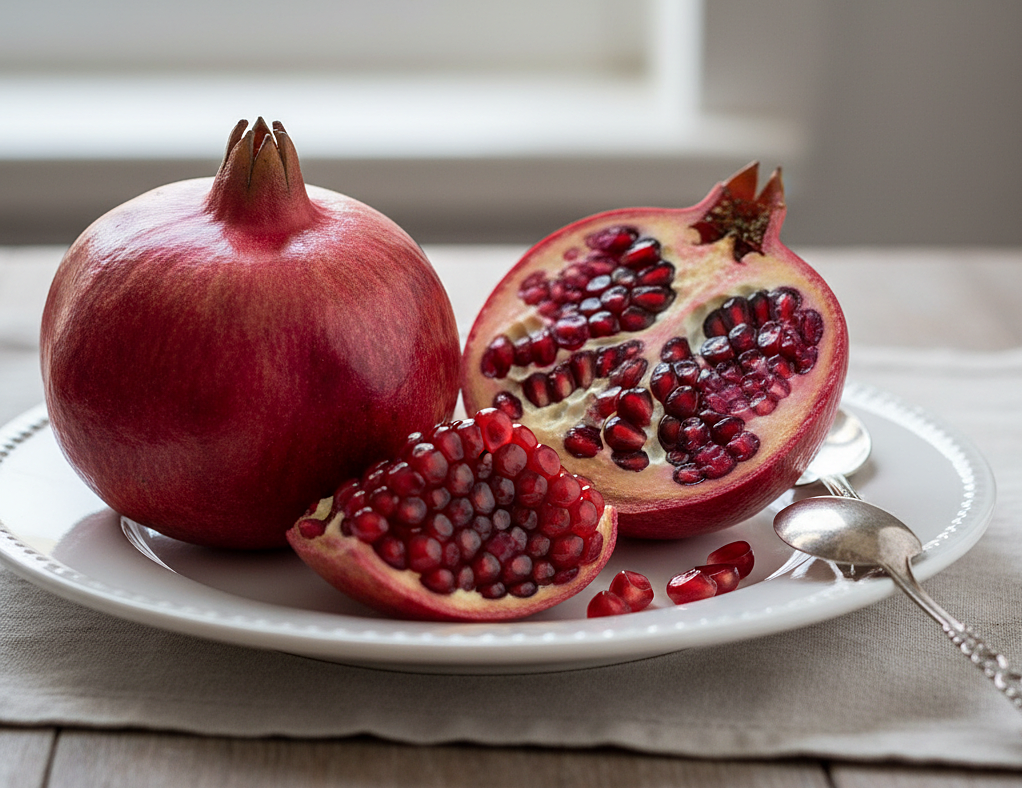Pomegranate juice is good for health, but eating the whole fruit offers even more benefits. The main advantage of whole pomegranates is their high fiber content, much of which is lost during juicing. Fiber is beneficial for digestion and regulates blood sugar levels by slowing down sugar absorption.
Boosting cardiovascular health
Eating a pomegranate every day can help lower blood pressure and protect arteries by reducing oxidative stress (i.e., reducing harmful free radicals) in the cardiovascular system. This fruit can also reduce the risk of cholesterol buildup and prevent the formation of unhealthy fats in blood vessels. The risk of atherosclerosis, which causes arteries to become blocked and hardened, is also reduced by regularly including pomegranates in one's diet.
Slowing down skin aging
Pomegranates are rich in antioxidants, which protect the skin from free radical damage, promote collagen formation, and reduce oxidative damage to the skin. As a result, the skin looks radiant, and the aging process is slowed down. Pomegranates also contain folate (vitamin B9), which supports cell growth and development. Antioxidants like punicalagin and anthocyanin contribute to anti-inflammatory effects and protect cells from damage.
 |
Eating a pomegranate every day is good for your health. Image generated by AI |
Eating a pomegranate every day is good for your health. Image generated by AI
Enhancing memory
Consuming pomegranates daily may enhance memory and brain function. When ingested, they increase metabolites, boosting brain activity related to tasks in both the left and right hemispheres for verbal and nonverbal memory tasks.
Supporting digestive health
Pomegranates are rich in both soluble and insoluble fiber, acting as a prebiotic that benefits digestive health. This fruit is helpful for individuals with inflammatory bowel disease and other intestinal conditions thanks to its high polyphenol content. Fiber promotes feelings of fullness and nourishes a healthy gut microbiome.
Preventing cancer
The polyphenols in pomegranates may slow the growth of prostate cancer cells and reduce prostate-specific antigen (PSA) levels. PSA is a protein produced by the prostate gland, and high levels in the blood are often associated with cancer. A diet regularly incorporating pomegranates may also prevent breast, lung, and skin cancer.
To choose a good pomegranate, select fruits with vibrant skin color, clearly protruding arils, a heavy feel, and a bloomed calyx. Avoid fruits that feel soft when squeezed, and prioritize buying pomegranates in season.
Le Nguyen (Times of India)
| Readers can submit nutrition questions here for doctors to answer |












